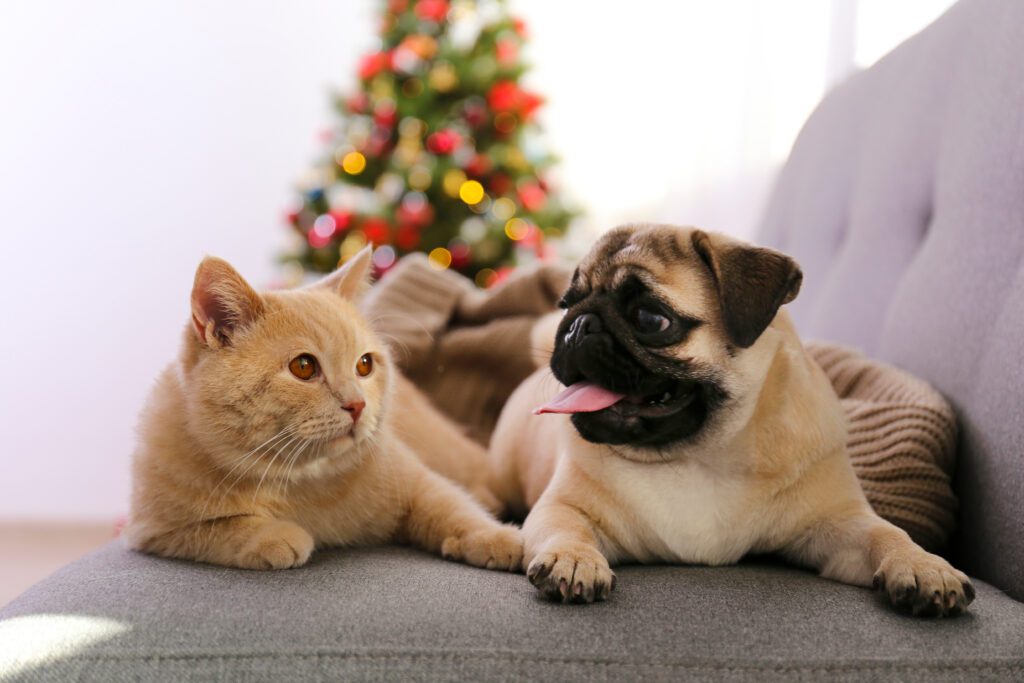
Written by: Bren Parker
A Guide to Keeping Your Furry Friend Safe & Happy This Season
The holiday season is a time for celebration, but it can also bring hidden dangers for our pets when pet parents aren’t aware of these seasonal hazards. From glittery decorations to family favorite foods, there are many potential risks to be mindful of this time of year. With just a little caution you can ensure you and your pets enjoy a safe and happy holiday at home and not at the emergency vet.
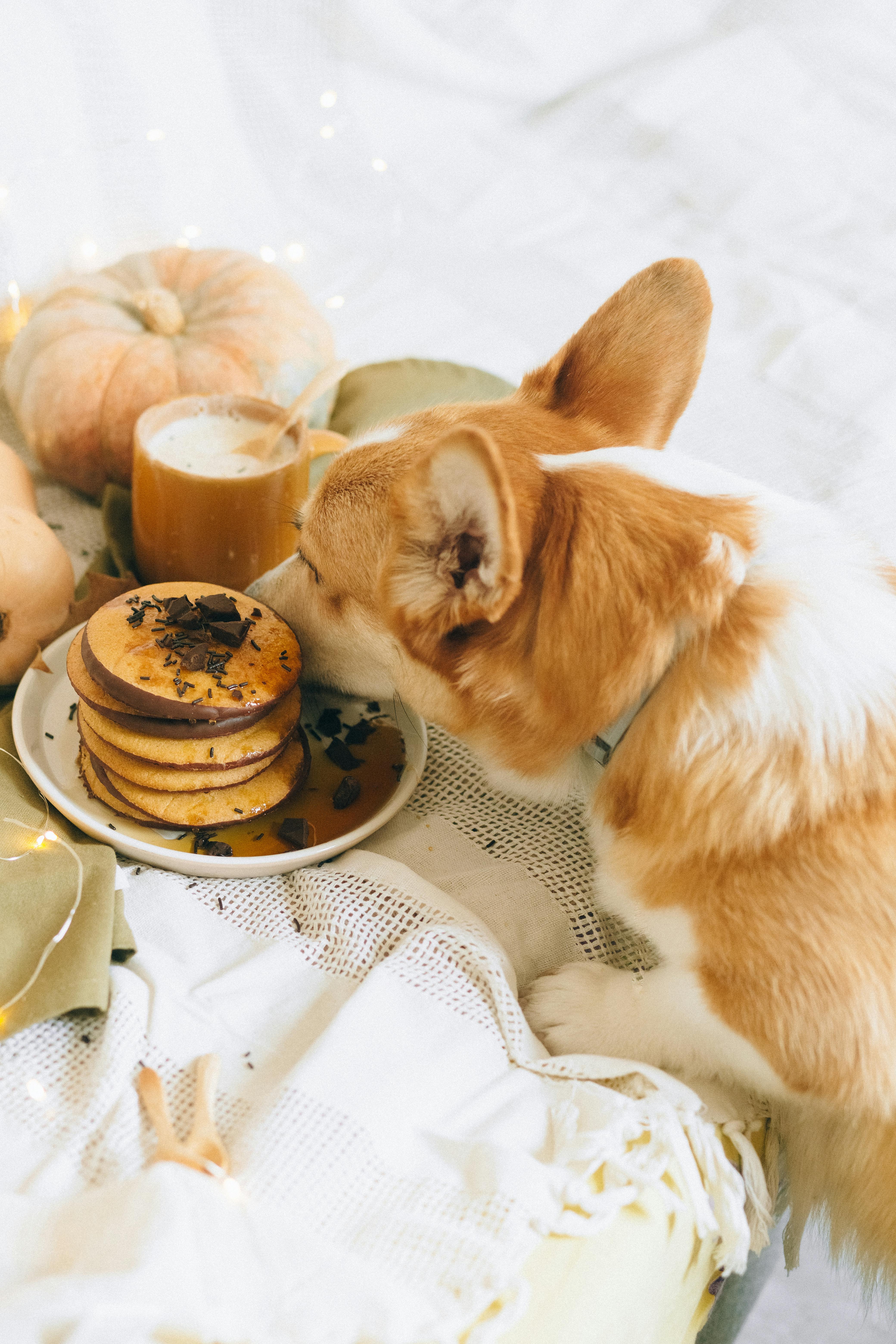
Watch Out for Toxic Foods
Many of those delicious holiday favorites of ours can be harmful—even deadly—to pets. Chocolate, raisins, grapes, onions, garlic, macadamia nuts, and alcohol are all toxic to animals. Avoid leaving holiday treats within reach, on counter-tops, or on tables during gatherings. Make sure guests know about what’s safe to share with pets. A good rule of thumb: Tell everyone not to give anything to the dog- leave that to you. The ASPCA has a good list of the people foods that are toxic to pets.
Avoid Dangerous Plants
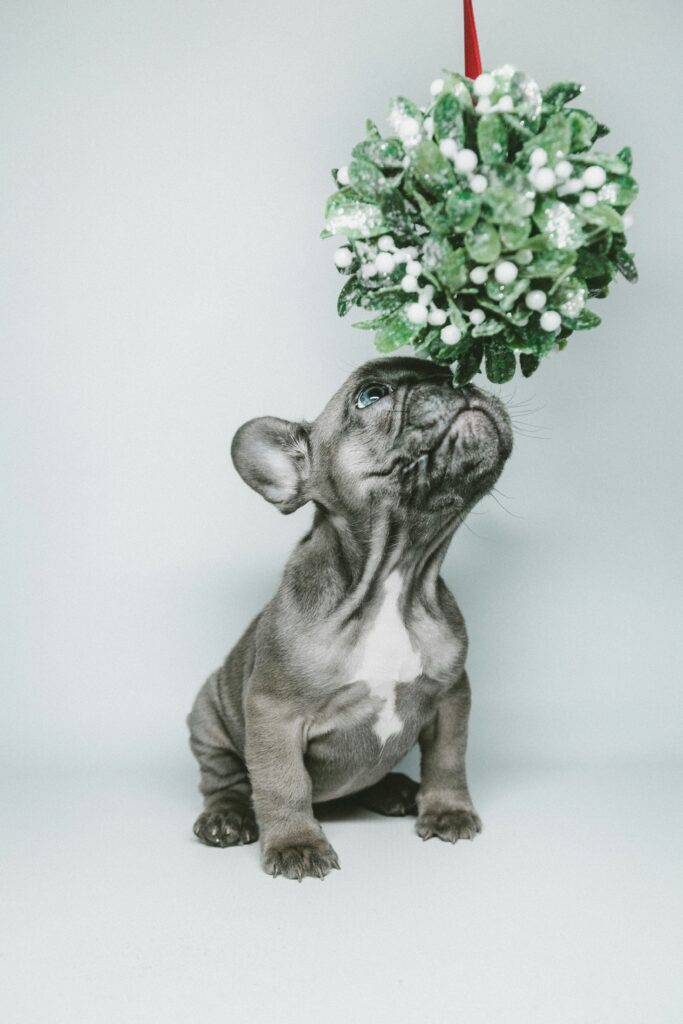
Many of the plants we associate with Christmas are toxic to pets including the popular poinsettia, mistletoe, and holly. If you plan to decorate with these plants, place them out of your pet’s reach. Best bet: Opt for safer alternatives like artificial flowers and wreaths.
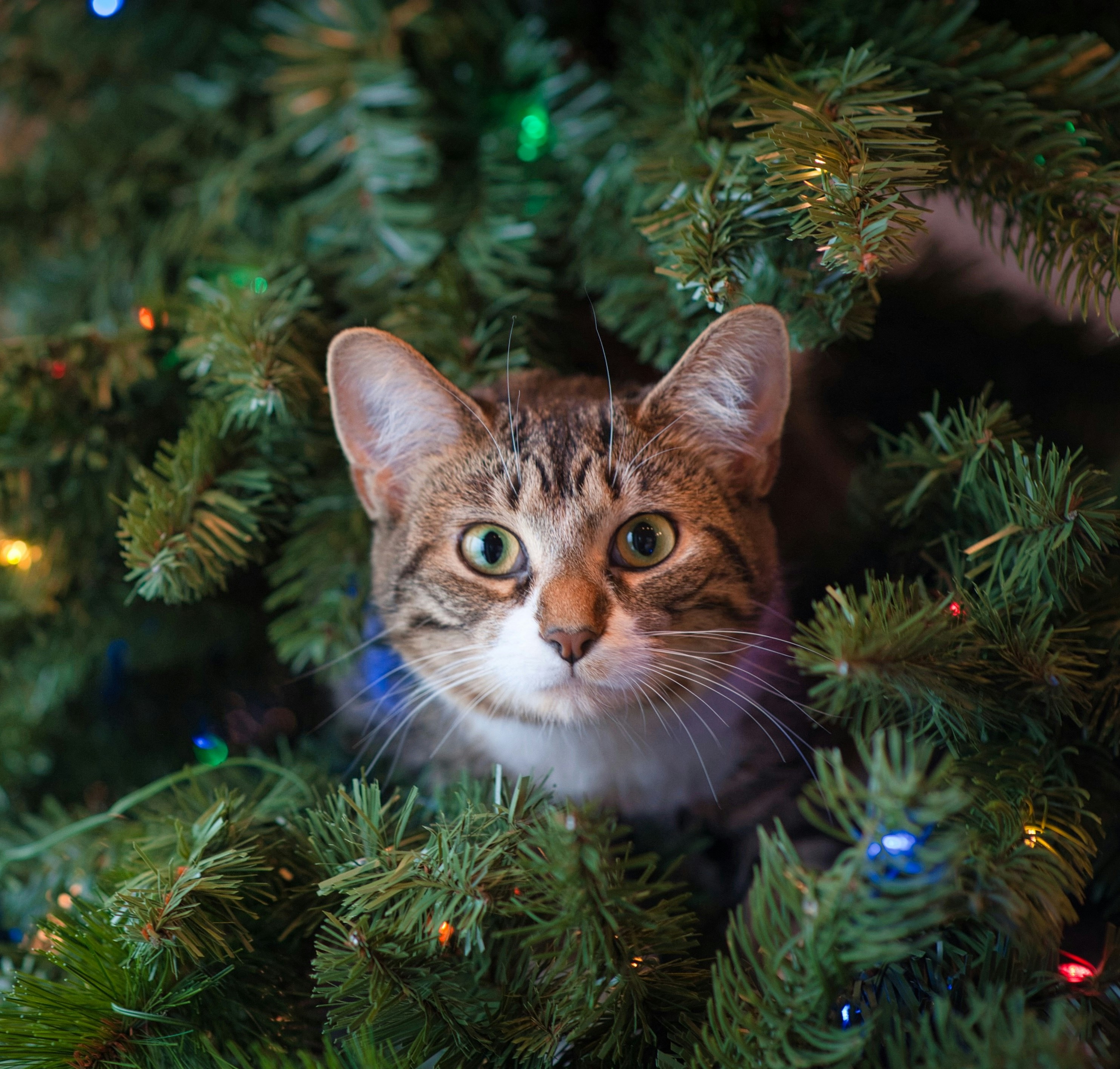
Indoor / Outdoor Decorations
Holiday decorations- tinsel, lights, ornaments, garlands, scented popourri- can be irresistible to curious pets. Tinsel and ribbons can cause choking or digestive blockages. Opt for shatterproof ornaments, and secure them tightly to the branches. Tree needles, real and artificial, can be very dangerous if ingested and need to be regularly vacuumed up. Metal ornament hooks are also dangerous. Make sure electrical cords for lights are safely tucked away to avoid chewing. This is especially important for outdoor decor. If you leave your dog out in the back yard for hours he may entertain himself by chewing on those new wires he’s found.
Holiday Stress
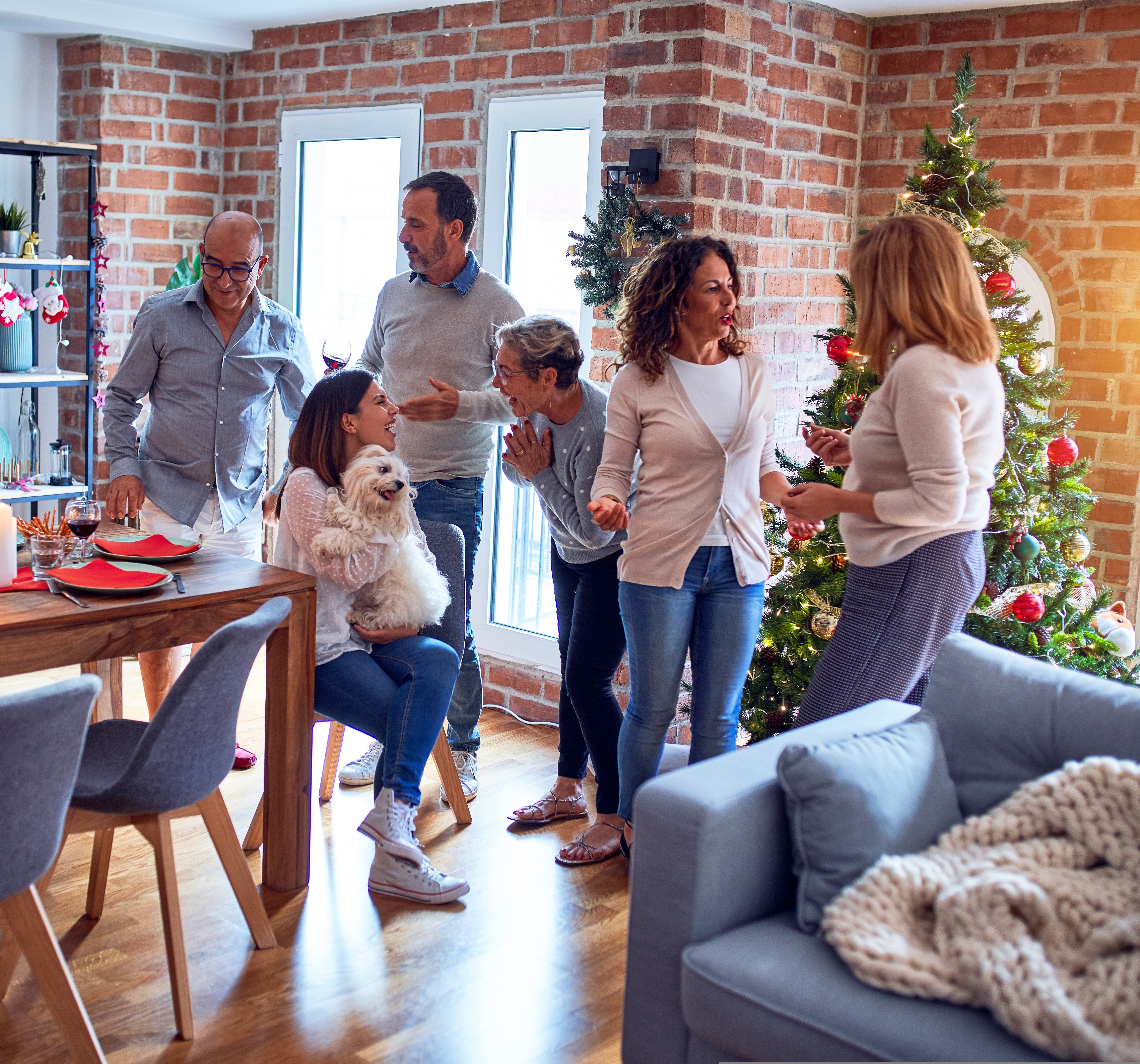
We’re not the only ones susceptible to stress over the holidays. Our pets can feel anxious with changes in their environment that come with the season. Bustling parties, strangers coming and going, loud noises, music filtering through the house, can all unnerve sensitive pets. Some pets are adjustable and friendly and will enjoy the festivities. For those that don’t, provide a quiet space where they can retreat if needed. Don’t force them to participate or socialize if it’s not their nature. Try to keep them on their routine as much as possible to keep everything normal.
Candles and Fires
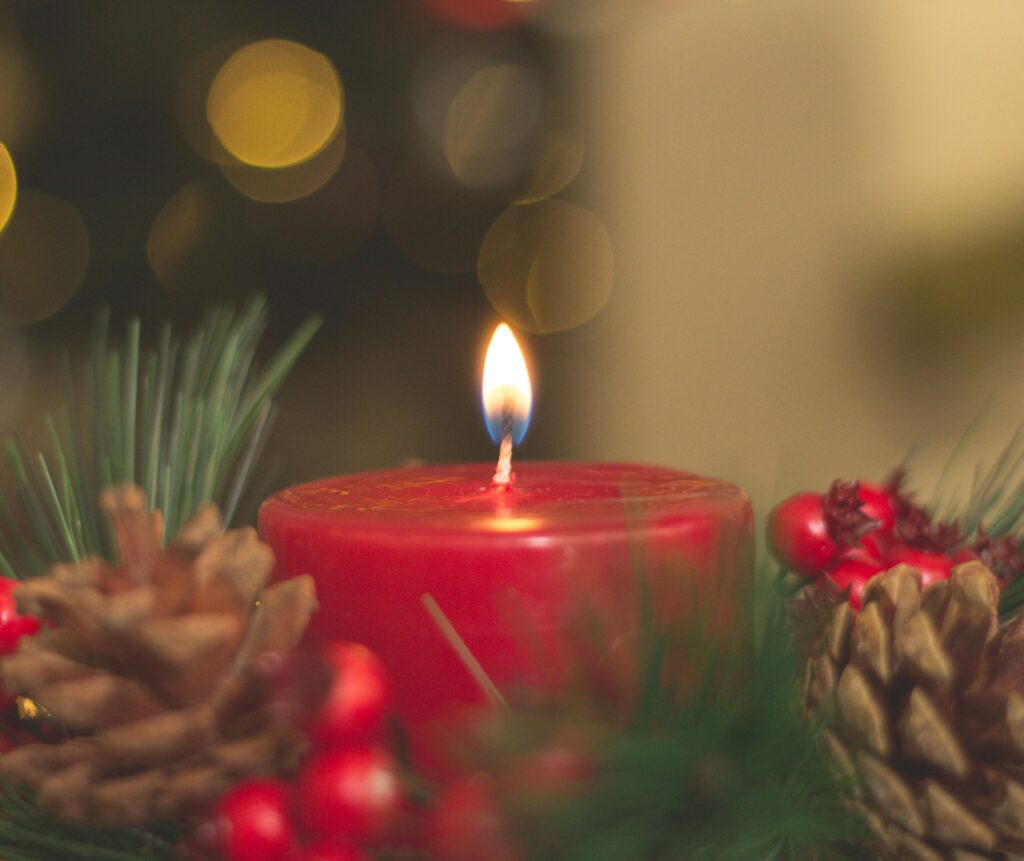
Candles are a popular decoration during the holidays, but they pose a fire risk, especially if knocked over by a curious pet (or clumsy guest). Cats and dogs can also be seriously burned if they get too close. If you use candles or have an open flame, keep them on high surfaces and never leave them unattended. Consider replacing them with flameless candles. They’re safer, cleaner, and last for years. The same caution needs to be used for fireplaces and fire pits. It’s normal for pets to be drawn to the flickering light and warmth of a fire or flame.
Holiday Travel
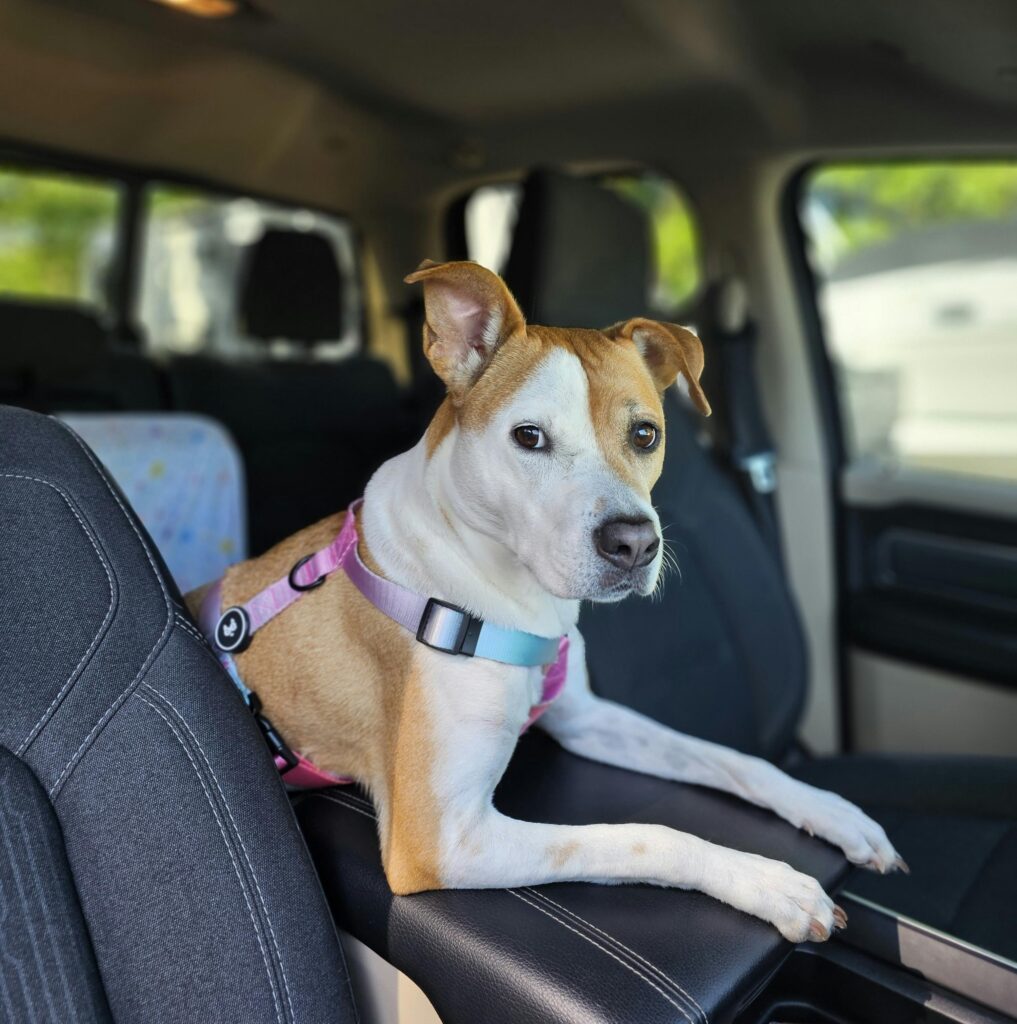
Many people travel during the holidays, and this can be stressful for pets, especially if they are not used to being in a car or boarding facility. Be sure to pack your pet’s essentials—food, water, bedding, medications, and favorite items—if you’re going on a trip. Always secure your pet in a carrier or use a pet seat-belt to keep them safe during car rides. If using a boarding facility, look for personal recommendations and read their feedback. For taking your dog with you, plan ahead. Make sure your hotel of choice is pet-friendly and see if they limit the number of pets – often it is two. When staying with family make sure everyone is ok with them coming along.